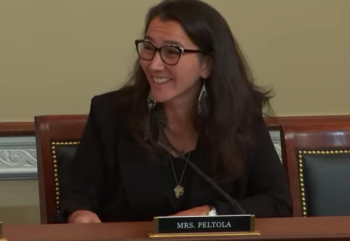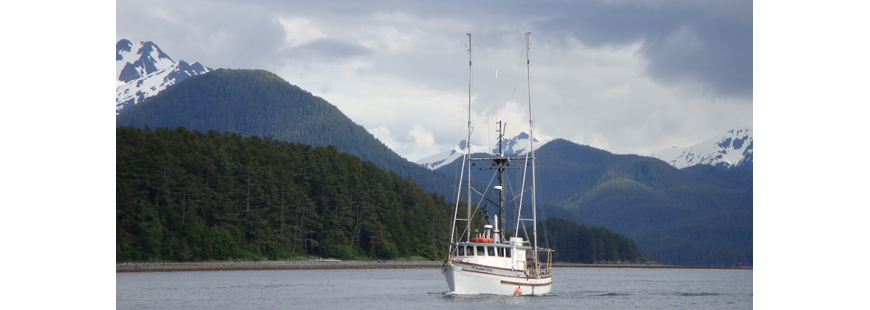Science-based fisheries management has been the key to maintaining long-term healthy and abundant fisheries upon which coastal and Indigenous communities depend. The law that ensures the successful and sustainable science-based management of U.S. federal fisheries is the Magnuson-Stevens Fishery Conservation and Management Act, which has been evolving since it first passed in 1976 to end foreign fishing in U.S. waters. Rep. Jared Huffman, along with Rep. Ed Case and newly elected Rep. Mary Sattler Peltola, is leading the charge to reauthorize this law once again.

Rep. Mary Peltola, the first Alaska Native in Congress, who has a laser-sharp focus on salmon conservation
U.S. fisheries create sport-fishing opportunities that support local businesses and keep generations of commercial fishermen going out to sea. U.S. fisheries also contribute significantly to the total U.S. economy, supplying 1.8 million jobs and contributing $372 billion in combined sales and added value. Ocean fisheries are not only the social and economic backbone of coastal cities, towns, and states, but also a source of local food security for Indigenous communities who have relied on subsistence fishing for millennia.
Knowing the importance of public engagement on this issue, Rep. Huffman conducted a series of listening sessions in each region to give the women and men who depend most on our ocean fisheries a voice in how reauthorization of the Magnuson-Stevens Act should take shape. H.R. 4690, the Sustaining America’s Fisheries for the Future Act, is the end result of this broad public participation. While the Magnuson-Stevens Act as it currently stands is a solid foundation for successful and sustainable fisheries management, H.R. 4690 for the first time adds management measures that address and prepare for the ecological and economic impacts of climate change, which will significantly update the law’s ability to effectively manage fisheries, and support fisheries-dependent businesses and communities, in changing ocean conditions. The bill also adds crucial measures to enhance accurate, timely, and verified catch accounting and improve needed infrastructure to keep working waterfronts and fishing communities productive and thriving.
Rep. Huffman paused action on the bill after the unfortunate and untimely death of Alaska Rep. Don Young, a strong voice in the fisheries management debate. Alaska’s newly elected representative, Rep. Peltola, is the first Alaska Native in Congress, representation that’s long overdue and worthy of celebration. And she has brought with her a laser-sharp focus on one issue critical to Alaska: salmon conservation. Alaska has long been a leader in developing policy for sustainable ocean fisheries management, and Rep. Peltola quickly and adeptly took the helm to advocate for an industry and way of life central to the coastal and Alaska Native communities she represents. Her voice speaks for more than Alaska, however; it also represents the importance of Indigenous participation in the management of U.S. fisheries and, by extension, the voices of all stakeholders who depend on this significant, publicly owned, natural resource.
Although the bill has been voted out of the House Natural Resources Committee, Rep. Huffman noted it would be unlikely that this bill reauthorizing the Magnuson-Stevens Act would pass into law this Congressional session. While disappointing, the thoughtful dialogue and full public participation that has been Rep. Huffman’s hallmark, has established a strong foundation for action in the next Congress. It’s the continued participation by the people and communities who are most impacted by strong science-based fisheries management that makes this bill the right strategy for ensuring our oceans and fisheries continue to support American livelihoods and coastal economies and are ready to meet the challenges of the future.


